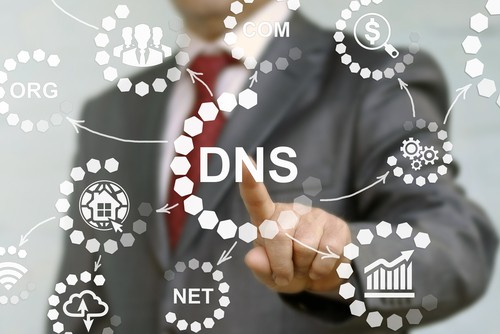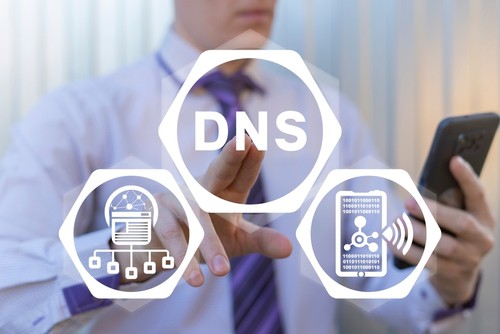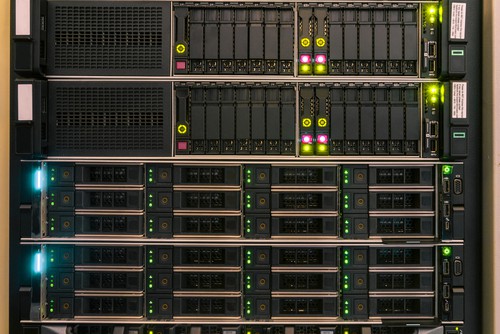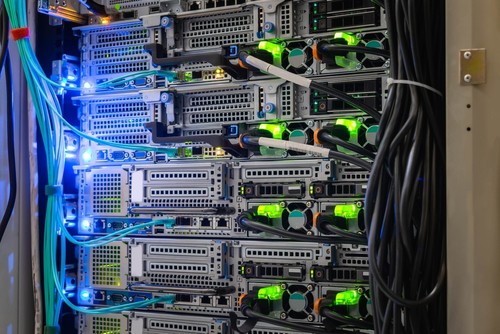The security of online activities has become an increasingly important concern in today’s digital age. As individuals and businesses rely heavily on the internet for various purposes, protecting sensitive information from potential threats is crucial. One aspect of online security that often goes unnoticed but plays a significant role is the Domain Name System (DNS) server. DNS servers are responsible for translating human-readable domain names into IP addresses, enabling users to access websites and other online services. However, not all DNS servers are created equal when it comes to security.
This guide aims to provide an objective analysis of the top 10 safest DNS servers available for ultimate online security. By understanding the functionality of DNS servers and considering key factors in their selection process, users can make informed decisions to enhance their online safety.

Table of Contents
Importance of DNS Servers in Online Security
Understanding the significance of DNS servers in ensuring online security becomes crucial when considering the potential risks associated with unsecured connections and unauthorized access to personal information.
Here’s the importance of DNS servers:
Translation of Domain Names
DNS servers are responsible for translating domain names into IP addresses and simplifying internet browsing by allowing users to access websites through memorable URLs rather than complex numerical addresses.
Protection of Sensitive Data
DNS servers significantly contribute to online security by providing a secure pathway for users’ data. Secure DNS servers encrypt the communication between clients and servers, preventing interception and manipulation of sensitive information by malicious actors.
Encryption Protocols
The adoption of encryption protocols such as DNS over HTTPS (DoH) and DNS over TLS (DoT) ensures that queries from clients to servers are encrypted, preserving users’ privacy and shielding their data from potential threats.
Malware Blocking
Secure DNS services often implement measures like malware blocking and phishing protection, preventing users from accessing harmful websites unknowingly. This helps safeguard personal data and protects against cyberattacks exploiting DNS vulnerabilities.
Enhanced Security
By securing DNS services, users can be confident that their online activities are shielded from potential risks associated with unsecured connections and unauthorized access to personal information.
Prevention of Unauthorized Access
Secure DNS servers play a crucial role in preventing unauthorized access to personal information, ensuring that only legitimate connections are established between users and websites.
Protection Against Cyberattacks
Secure DNS not only safeguards individual users but also helps protect the internet ecosystem as a whole by reducing the vulnerability of the DNS infrastructure to cyberattacks.
User Privacy
Secure DNS enhances user privacy, ensuring that their online activities remain confidential and free from eavesdropping or data manipulation.
User Confidence
Knowing that DNS servers are secure and employ encryption protocols gives users confidence that their online interactions are less susceptible to security breaches.
Holistic Online Security
DNS servers are a critical component in the broader landscape of online security, making them an integral part of the effort to protect against a range of digital threats.
Understanding DNS Server Functionality
A DNS (Domain Name System) server is a crucial component of the internet that serves as a digital directory for translating human-readable domain names, such as www.example.com, into IP addresses, which are the numerical identifiers that computers use to locate and communicate with each other on the web. Think of it as the internet’s equivalent of a phone book, where domain names are listed alongside their corresponding IP addresses. When you enter a URL into your web browser, your computer sends a request to a DNS server to resolve the domain name to its associated IP address, enabling it to find the correct web server and load the requested web page. DNS servers play a fundamental role in ensuring the smooth and efficient functioning of the internet by simplifying the way we access websites and online services.

The following is what you need to know to understand how a DNS server works:
DNS Requests
When a user enters a domain name into their web browser, it sends a DNS request to a DNS server to obtain the corresponding IP address.
DNS Provider
A DNS provider is responsible for managing and maintaining DNS servers, ensuring their availability and reliability.
Caching
To improve efficiency and reduce network traffic, DNS servers often cache previously resolved domain name-to-IP address mappings.
Primary and Secondary DNS Servers
DNS resolution typically involves both primary and secondary servers. Primary servers hold authoritative information about specific domains, while secondary servers act as backups in case the primary server becomes unavailable.
Recursive vs. Iterative Resolution
There are two methods of resolving DNS queries: recursive resolution involves the server performing all necessary steps to provide a complete answer to the query, while iterative resolution involves providing partial answers and allowing subsequent queries to be made.
By understanding these aspects of DNS server functionality, users can better appreciate how these critical components contribute to internet security and accessibility.
Factors To Consider When Choosing a DNS Server
Here are key factors to take into account:
Reliability
Look for a DNS server that has a high uptime and can handle a large number of queries without experiencing downtime or delays. Choose a server that is known for its reliability and stability.
Speed
The speed of a DNS server is crucial as it directly affects the loading time of websites and other online services. Look for a server that offers fast response times and is optimized for performance.
Security
It is essential to choose a DNS server that implements robust encryption protocols such as Secure Sockets Layer (SSL) or Transport Layer Security (TLS) to protect against potential threats like eavesdropping or data manipulation. Additionally, opting for a DNS server that supports Domain Name System Security Extensions (DNSSEC) can further enhance the security of online transactions by verifying the authenticity of DNS responses.
Privacy
Some DNS servers may collect and store user data, which can raise privacy concerns. Look for a server that respects user privacy and has strict policies in place regarding data collection and retention.
Customization
Depending on your specific needs, you may require a DNS server that allows for customization and configuration options. Look for a server that offers flexibility in terms of custom DNS records, DNS forwarding, and other advanced features.
Support
In case you encounter any issues or have questions, it’s important to choose a DNS server that provides reliable and responsive customer support. Look for servers that offer multiple support channels, such as email, live chat, or phone support, and have a good reputation for addressing user concerns in a timely manner.
Safest DNS Servers
Below is an analysis of the safest DNS servers:
1. Cloudflare DNS Server
The Cloudflare DNS server has gained significant attention and recognition due to its commitment to privacy and security, offering users a reliable and efficient option for accessing websites and online services while minimizing the risk of potential threats.
As one of the safest DNS servers available, Cloudflare DNS prioritizes user privacy by not logging any personally identifiable information (PII) or selling user data to third parties. This ensures that users can browse the internet without worrying about their personal information being collected or compromised.
In terms of security, Cloudflare DNS implements various measures to protect against malicious activities. It utilizes a robust infrastructure with multiple layers of defenses, including distributed denial-of-service (DDoS) protection, encryption protocols such as DNS over HTTPS (DoH), and secure transmission channels. By employing these advanced security measures, Cloudflare DNS helps prevent unauthorized access, data breaches, and other cyber threats.
Cloudflare DNS is known for its speed and reliability. With a vast global network of servers strategically located around the world, it offers fast response times and low latency for improved browsing experiences. Additionally, its Anycast routing technology automatically directs users to the nearest server location, optimizing performance even further.
However, Cloudflare’s widespread usage and reliance on its services mean that when they experience outages or technical issues, it can disrupt the online operations of many websites and services. Additionally, concerns have been raised about the extent to which Cloudflare collects and potentially shares user data, raising privacy issues for some users.
The pricing of Cloudflare starts at $5 with a free plan.
Primary DNS: 1.1.1.1
Secondary DNS: 1.0.0.1

Google Public DNS Server
Google Public DNS Server, known for its widespread usage and reliability, offers users a trusted option for accessing websites and online services with enhanced privacy and security measures. As one of the most popular DNS servers, Google Public DNS aims to provide users with a fast and secure browsing experience by offering improved speed and protection against malicious activities. By leveraging Google’s extensive infrastructure, this DNS server resolves domain names efficiently, ensuring that users can access websites without any delays or interruptions.
In terms of online security, Google Public DNS takes several measures to protect users’ privacy. It supports Domain Name System Security Extensions (DNSSEC), which helps prevent unauthorized modification of DNS data. This ensures that when users access websites through the server, they are directed to legitimate destinations without any risk of being redirected to malicious sites. Additionally, the Google Public DNS server employs various techniques to detect and block phishing attempts and malware-infected domains. These proactive measures contribute to creating a safer online environment for users by reducing the risk of falling victim to cyber threats.
Google Public DNS is an excellent choice for individuals seeking ultimate online security. Its widespread usage demonstrates its reliability and effectiveness in providing fast and secure browsing experiences. By incorporating advanced security features and blocking malicious domains, this DNS server plays a crucial role in safeguarding user privacy and protecting against cyber threats.
Google Public DNS, while fast and reliable, has been criticized for potential privacy concerns, as Google may collect user data from DNS queries. Additionally, it may not be as effective in circumventing censorship and providing access to restricted websites as some alternative DNS services.
Google Public DNS is a free DNS server.
Primary DNS: 8.8.8.8
Secondary DNS: 8.8.4.4.
3. OpenDNS Server
OpenDNS Server, a widely used and reliable alternative to traditional DNS servers, offers users a secure browsing experience with enhanced protection against malicious activities. OpenDNS provides secure DNS resolution, ensuring that users can access websites without being vulnerable to cyber threats.
One of the key advantages of using OpenDNS Server is its ability to block known malicious websites in real time. The server maintains an extensive database of blacklisted sites that are associated with phishing scams, malware distribution, or other fraudulent activities. When a user requests access to a website on their browser, OpenDNS cross-references the requested domain name with its blacklist. If there is a match found, OpenDNS immediately blocks the connection and warns the user about potential risks. This proactive approach ensures that users are protected from visiting potentially harmful websites.
Furthermore, OpenDNS Server offers additional security features such as content filtering and customizable security settings. Users have the flexibility to configure their preferred level of security based on their specific needs. This allows individuals or organizations to tailor their internet browsing experience according to their desired level of protection.
With its robust infrastructure and focus on internet security, OpenDNS Server proves to be an effective solution for those seeking reliable and secure DNS resolution services.
OpenDNS servers may not offer the same level of privacy as some other DNS services, as they log DNS query data, potentially raising privacy concerns. Additionally, their free service may have limitations on the number of DNS queries and filtering options, which could be restrictive for users with specific needs.
Open DNS has three pricing plans: OpenDNS Family Shield and Open DNS Home are free while OpenDNS Home VIP and Open DNS Umbrella Prosumer cost $19.95/year and $20/user respectively.
Primary DNS: 208.67.222.222
Secondary DNS: 208.67.220.220
4. Quad9 DNS Server
Quad9 DNS Server, a reliable and widely used alternative to traditional DNS servers, offers users an additional layer of protection against cyber threats by leveraging its extensive network infrastructure and advanced security features.
As one of the leading DNS service providers, Quad9 focuses on providing secure and private internet access for users around the world. By using a combination of threat intelligence from various sources, such as IBM’s X-Force Threat Intelligence and abuse.ch’s Feodo Tracker, Quad9 is able to identify and block access to malicious websites or domains that may pose a risk to users’ online security. The Quad9 DNS server operates by intercepting DNS queries made by users and analyzing them against a constantly updated database of known malicious domains. If a match is found, Quad9 returns an IP address pointing to a ‘blocked’ page instead of allowing the user’s device to connect to the potentially harmful website. This proactive approach helps prevent malware infections, phishing attacks, and other cyber threats that often rely on compromised or malicious websites for their distribution.
Additionally, Quad9 does not collect personally identifiable information (PII) from its users, ensuring privacy while maintaining high-level security. By utilizing Quad9 as their chosen DNS server, individuals can enhance their online security without compromising internet speed or reliability. The extensive network infrastructure allows for fast response times when resolving domain names while still maintaining robust protection against potential threats lurking in cyberspace.
Quad9, while offering enhanced security and privacy features, has some limitations, such as limited configurability and filtering options compared to more specialized DNS services. Additionally, it may not be as widely distributed as some other public DNS servers, potentially leading to slightly slower response times in certain regions.
Quad9 is a free service
Primary DNS: 08.67.222.222
Secondary DNS: 208.67.220.220
5. Comodo Secure DNS Server

Comodo offers a robust and secure infrastructure that aims to enhance online security for its users. By leveraging advanced technology and a global network of servers, Comodo Secure DNS provides an effective solution for protecting against various online threats. Comodo Secure DNS Server operates by directing user requests through its network of strategically located servers. This process allows it to filter out malicious websites and prevent access to them, thereby safeguarding users from potential phishing attacks or malware infections.
Moreover, Comodo’s extensive database of known malicious domains is regularly updated, ensuring that it can identify and block new threats effectively. By employing this comprehensive approach to filtering web traffic, Comodo Secure DNS acts as a reliable barrier between users and potentially harmful online content.
When it comes to securing your online activities and protecting your devices from potential threats lurking on the internet, considering a reputable and reliable DNS provider like Comodo Secure DNS is crucial. Its advanced infrastructure combined with regular updates to its database of malicious domains provides an effective shield against various cyber threats. By incorporating features such as fast response times, secure browsing capabilities, and protection against phishing attacks, Comodo stands as a strong contender among top-tier DNS servers, ensuring a safer online experience for its users.
Comodo Secure DNS Server offers enhanced security and privacy features, but it may not provide the same level of performance and speed as some other DNS servers, potentially leading to slower internet connection experiences. Additionally, its availability and support may vary, limiting its accessibility in some regions or for certain users.
Comodo Secure DNS server is a free service.
Primary DNS: 8.26.56.26
Secondary DNS: 8.20.247.20
6. CleanBrowsing DNS Server
CleanBrowsing DNS Server is a reliable option for users seeking enhanced protection against online threats and a safer browsing experience. CleanBrowsing offers robust DNS security features to ensure internet protection. By utilizing this server, users can enjoy a more secure online environment. One key aspect that sets CleanBrowsing apart is its focus on providing clean and safe browsing experiences for all users. It employs various filters that block access to potentially harmful or inappropriate content, making it particularly suitable for families or organizations concerned about internet safety. With CleanBrowsing DNS Server, users can have peace of mind knowing that their online activities are protected from malicious websites and cyber threats.
Moreover, CleanBrowsing’s commitment to privacy further enhances its appeal as a secure DNS server option. The server does not log any personally identifiable information (PII) or track user activity, ensuring anonymity while browsing the internet. This feature aligns with the principles of data privacy and gives users control over their online presence.
CleanBrowsing DNS Server is an excellent choice for those looking to enhance their online security and protect against potential threats. With its comprehensive filtering system and commitment to user privacy, this server provides an effective solution for individuals or organizations seeking a safer browsing experience. By selecting CleanBrowsing as their preferred DNS server, users can enjoy improved internet protection without compromising on speed or performance.
CleanBrowsing DNS Server provides family-friendly and security-focused filtering, but it may occasionally block legitimate websites or services, leading to potential false positives. Users who require a more flexible or customizable DNS solution may find its filtering options limited compared to other DNS providers.
CleanBrowsing DNS has three pricing plans: Basic at $75/year, Plan: Pro 50 at $150/year, and Plan: Pro 100 at $300/year. The price of each plan is determined by the number of requests per day.
Primary DNS: 185.228.168.9
Secondary DNS: 185.228.169.9
7. AdGuard DNS Server
The primary function of a DNS server is to translate human-readable domain names into machine-readable IP addresses. As one of the best DNS servers, AdGuard goes beyond this basic functionality by incorporating advanced filtering capabilities that help block access to malicious websites, phishing attempts, and other harmful content.
The AdGuard DNS server employs an extensive database of known malicious domains and uses real-time analysis to identify potential threats. By intercepting requests for these domains, it prevents users from connecting to potentially dangerous websites or being exposed to harmful content. This proactive approach adds an extra layer of protection against malware infections or other cyberattacks. Moreover, AdGuard’s commitment to user privacy is another significant aspect that sets it apart as a reliable DNS server option. It does not log any personally identifiable information (PII) or browsing data, ensuring anonymity for users while protecting their online activities from prying eyes.
The AdGuard DNS Server offers enhanced online security through its robust filtering system and unwavering dedication to user privacy. By leveraging its advanced features and extensive database of known malicious domains, users can enjoy a safer browsing experience with reduced risks of encountering harmful content or falling victim to cyber threats.
AdGuard DNS, a popular DNS filtering service, has limitations such as the inability to block specific websites or content categories with precision, and its effectiveness may vary depending on the user’s geographical location due to regional blocking differences.
The AdGuard DNS has four pricing plans: Starter which is free, Personal at $19.99, Team at $199.99 and Enterprise which may require you to contact the Company.
Primary DNS: 94.140.14.14.
Secondary DNS: 94.140.15.15.

8. Yandex.DNS Server
Yandex.DNS ensures ultimate online security by providing reliable protection against various types of malware, phishing attempts, and fraudulent websites. By filtering out malicious content at the DNS level, it prevents users from accessing harmful websites or unknowingly downloading malicious software.
One key feature of Yandex.DNS Server is the ability to block access to dangerous or suspicious websites. It maintains a constantly updated database of known malicious sites, preventing users from inadvertently visiting them. This feature is particularly useful in protecting against phishing attacks, where cybercriminals attempt to trick users into revealing sensitive information such as passwords or credit card details. Additionally, Yandex.DNS Server uses advanced algorithms to analyze website reputation and behavior in real-time, further enhancing its ability to identify and block potentially harmful sites. In addition to blocking malicious content, Yandex.DNS Server also provides secure encryption for all DNS queries. This ensures that user data remains confidential during the process of translating domain names into IP addresses. By encrypting this communication channel, Yandex. DNS helps prevent unauthorized interception or tampering with DNS requests, thereby safeguarding user privacy and reducing the risk of man-in-the-middle attacks.
Yandex.DNS Server stands out as one of the safest DNS servers available in terms of online security. Its comprehensive range of features including website blocking and encrypted communication channels help protect users from various online threats while ensuring a seamless browsing experience. Incorporating Yandex.DNS into one’s network infrastructure can significantly contribute towards achieving ultimate online security for individuals and organizations alike.
Yandex.DNS, a DNS service provided by the Russian tech company Yandex, may face limitations related to concerns about data privacy and security due to its origin in Russia, which has raised questions about potential government surveillance and data access. Additionally, Yandex.DNS might not offer as extensive support for international websites and services compared to some other global DNS providers, potentially leading to suboptimal performance for users outside of Russia.
Yandex.DNS is among the free public DNS servers.
Primary: 77.88.8.8
Secondary: 77.88.8.1
9. DNS.Watch Server
The DNS.Watch Server offers robust features and functionalities to enhance internet security and protect users from potential threats. This DNS server is known for its commitment to privacy, as it does not log any user data, ensuring ultimate online security. By using the DNS.Watch Server, users can have peace of mind knowing that their online activities are not being monitored or tracked. The DNS.Watch Server supports encryption protocols such as DNS over TLS (DoT) and DNSCrypt, which provide an extra layer of security by encrypting the communication between the user’s device and the server. This helps prevent eavesdropping and ensures that sensitive information remains protected.
The DNS.Watch Server actively blocks access to malicious websites and known malware sources. It employs various threat intelligence feeds to identify and blacklist harmful domains, preventing users from inadvertently visiting dangerous websites that could compromise their online security. The DNS.Watch Server operates on a globally distributed anycast network. This means that multiple servers are strategically placed in different locations around the world, allowing users to connect to the nearest server for faster response times and improved performance. Additionally, this setup provides redundancy, ensuring uninterrupted service even if certain servers become unavailable.
By utilizing these advanced features, the DNS.Watch Server stands out as one of the safest DNS servers available for enhancing online security. Its focus on privacy, secure encryption protocols, malware blocking capabilities, and global anycast network make it a reliable choice for users seeking ultimate protection against potential threats while browsing the internet.
DNS.Watch, a public DNS resolver service, has limitations such as a lack of advanced security features and it may not provide as robust privacy protection as some other DNS providers, potentially logging user data. Additionally, it does not offer as extensive geographical coverage as some larger DNS providers, potentially leading to slower response times in certain regions.
DNS.Watch is a free service.
Primary DNS (IPv4): 84.200.69.80
Secondary DNS (IPv4): 84.200.70.40
Primary DNS (IPv6): 2001:1608:10:25::1c04:b12f
Secondary DNS (IPv6): 2001:1608:10:25::9249:d69b
10. Level 3 DNS
Level 3 DNS, which is now part of CenturyLink and is known as Lumen Technologies, offers both security features and has certain limitations. On the security front, Level 3 DNS provides protection against common DNS-related threats, such as Distributed Denial of Service (DDoS) attacks and cache poisoning. They employ advanced security measures to ensure the reliability and integrity of their DNS infrastructure. This includes the use of Anycast technology to distribute DNS queries across multiple geographically dispersed servers, enhancing redundancy and resilience.
However, like any DNS service, Level 3 DNS is not immune to all possible security risks, and it may still be susceptible to certain types of attacks or outages, such as sophisticated DNS hijacking. It’s important for organizations to complement DNS security with additional layers of protection to mitigate potential vulnerabilities and ensure a robust cybersecurity posture.
Lever 3 is a free DNS server.
Primary DNS: 209.244.0.3
Secondary DNS: 209.244.0.4

Frequently Asked Questions
Are There Any Free DNS Servers That Offer Strong Security Features?
Yes, there are free DNS servers available that offer strong security features. These servers employ measures such as DNSSEC (Domain Name System Security Extensions) and threat intelligence to ensure secure online browsing and protect against malicious activities.
How Can I Change My DNS Server Settings on My Computer?
To change DNS server settings on a computer, access the network settings and locate the ‘DNS’ field. Replace the existing DNS server address with the desired one, ensuring compatibility and considering security features offered by different servers.
Can Using a DNS Server Help Protect Against Phishing Attacks?
Using a secure DNS server can help protect against phishing attacks by blocking access to malicious websites and providing real-time threat intelligence. It adds an additional layer of security to prevent users from falling victim to deceptive online activities.
Can Using a Specific DNS Server Improve My Internet Speed and Browsing Experience?
Using a specific DNS server can potentially improve your internet speed and browsing experience. Many internet service providers (ISPs) provide DNS servers that might not be optimized for speed, and using a faster and more reliable DNS resolver can reduce latency in domain name resolution, leading to quicker website loading times. Additionally, some DNS services offer features like content filtering and protection against malicious websites, enhancing your online security and overall browsing experience.
Conclusion
The choice of a DNS server plays a critical role in ensuring online security. By using a secure and reliable DNS server, users can protect themselves from various cyber threats such as phishing attacks, malware infections, and unauthorized access to their sensitive information. The above top 10 safest DNS servers provide users with enhanced online security through various features such as encrypted connections, advanced threat detection mechanisms, and efficient blocking of malicious websites. By choosing one of these servers, users can significantly reduce their exposure to cyber threats while enjoying faster browsing speeds.
